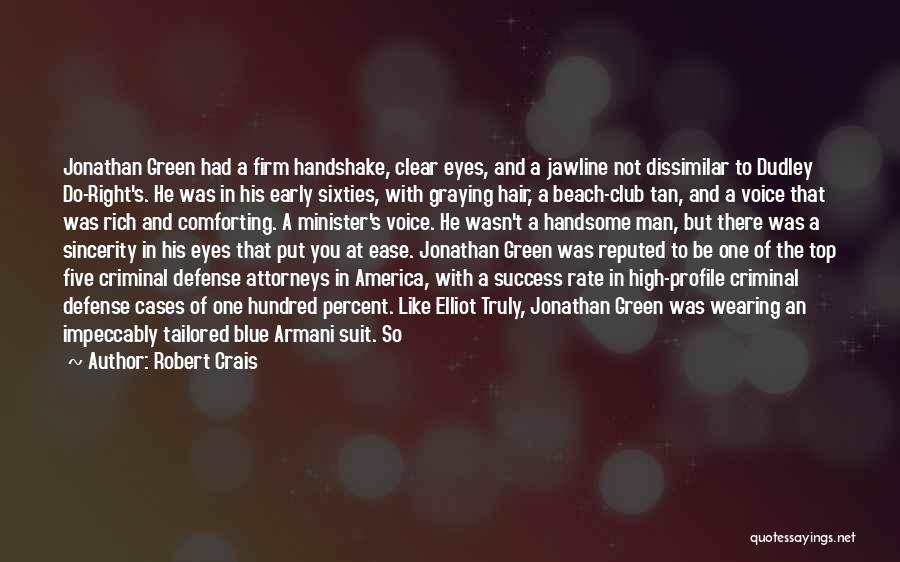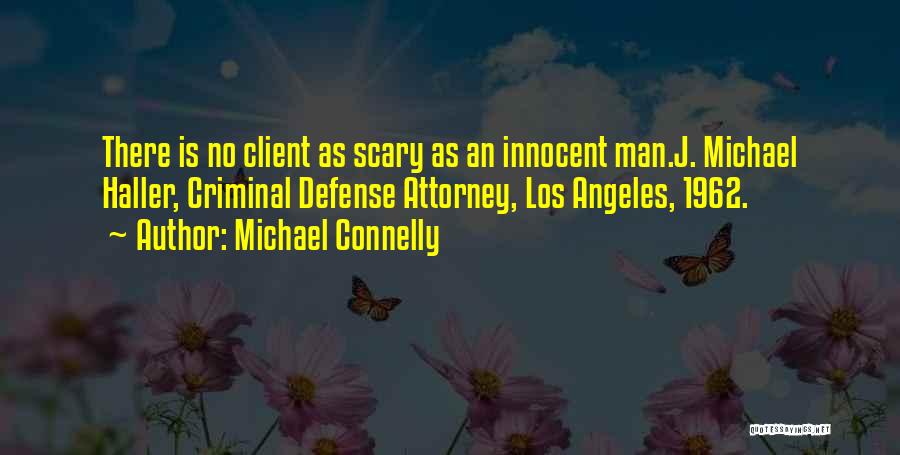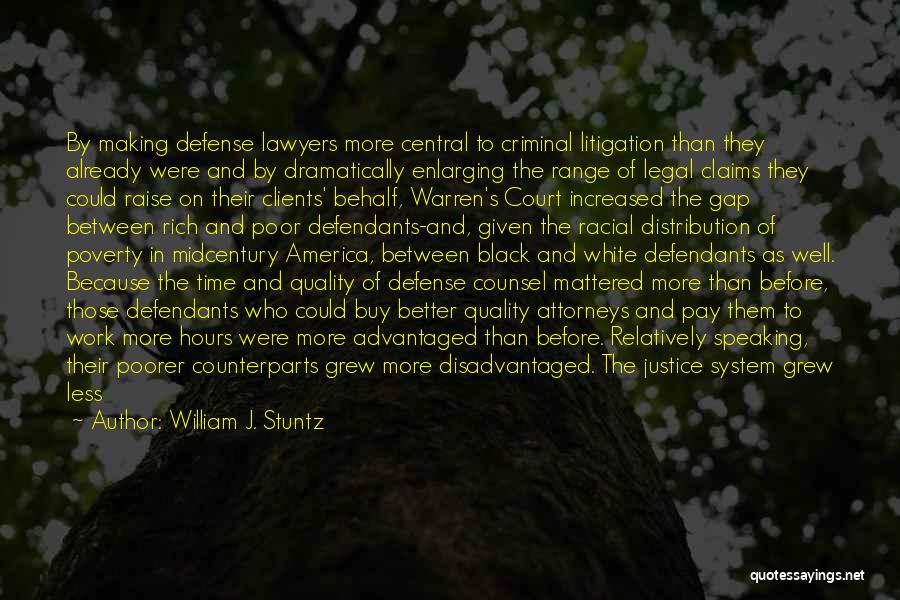Quotes & Sayings About Criminal Defense Attorneys
Enjoy reading and share 4 famous quotes about Criminal Defense Attorneys with everyone.
Top Criminal Defense Attorneys Quotes

Well, did he do it?"
She always asked the irrelevant question. It didn't matter in terms of the strategy of the case whether the defendant "did it" or not. What mattered was the evidence against him
the proof
and if and how it could be neutralized. My job was to bury the proof, to color the proof a shade of gray. Gray was the color of reasonable doubt. — Michael Connelly

Jonathan Green had a firm handshake, clear eyes, and a jawline not dissimilar to Dudley Do-Right's. He was in his early sixties, with graying hair, a beach-club tan, and a voice that was rich and comforting. A minister's voice. He wasn't a handsome man, but there was a sincerity in his eyes that put you at ease. Jonathan Green was reputed to be one of the top five criminal defense attorneys in America, with a success rate in high-profile criminal defense cases of one hundred percent. Like Elliot Truly, Jonathan Green was wearing an impeccably tailored blue Armani suit. So were the lesser attorneys. Maybe they got a bulk discount. I was wearing impeccably tailored black Gap jeans, a linen aloha shirt, and white Reebok sneakers. Green said, Did Elliot explain why we wanted to see you? — Robert Crais

There is no client as scary as an innocent man.
J. Michael Haller, Criminal Defense Attorney, Los Angeles, 1962. — Michael Connelly

By making defense lawyers more central to criminal litigation than they already were and by dramatically enlarging the range of legal claims they could raise on their clients' behalf, Warren's Court increased the gap between rich and poor defendants-and, given the racial distribution of poverty in midcentury America, between black and white defendants as well. Because the time and quality of defense counsel mattered more than before, those defendants who could buy better quality attorneys and pay them to work more hours were more advantaged than before. Relatively speaking, their poorer counterparts grew more disadvantaged. The justice system grew less egalitarian through the Supreme Court's efforts to make it more so.
The — William J. Stuntz





